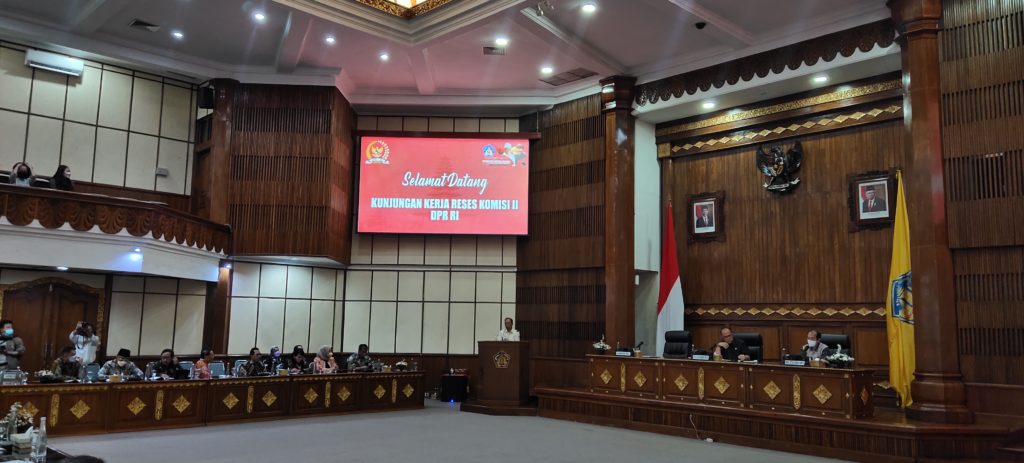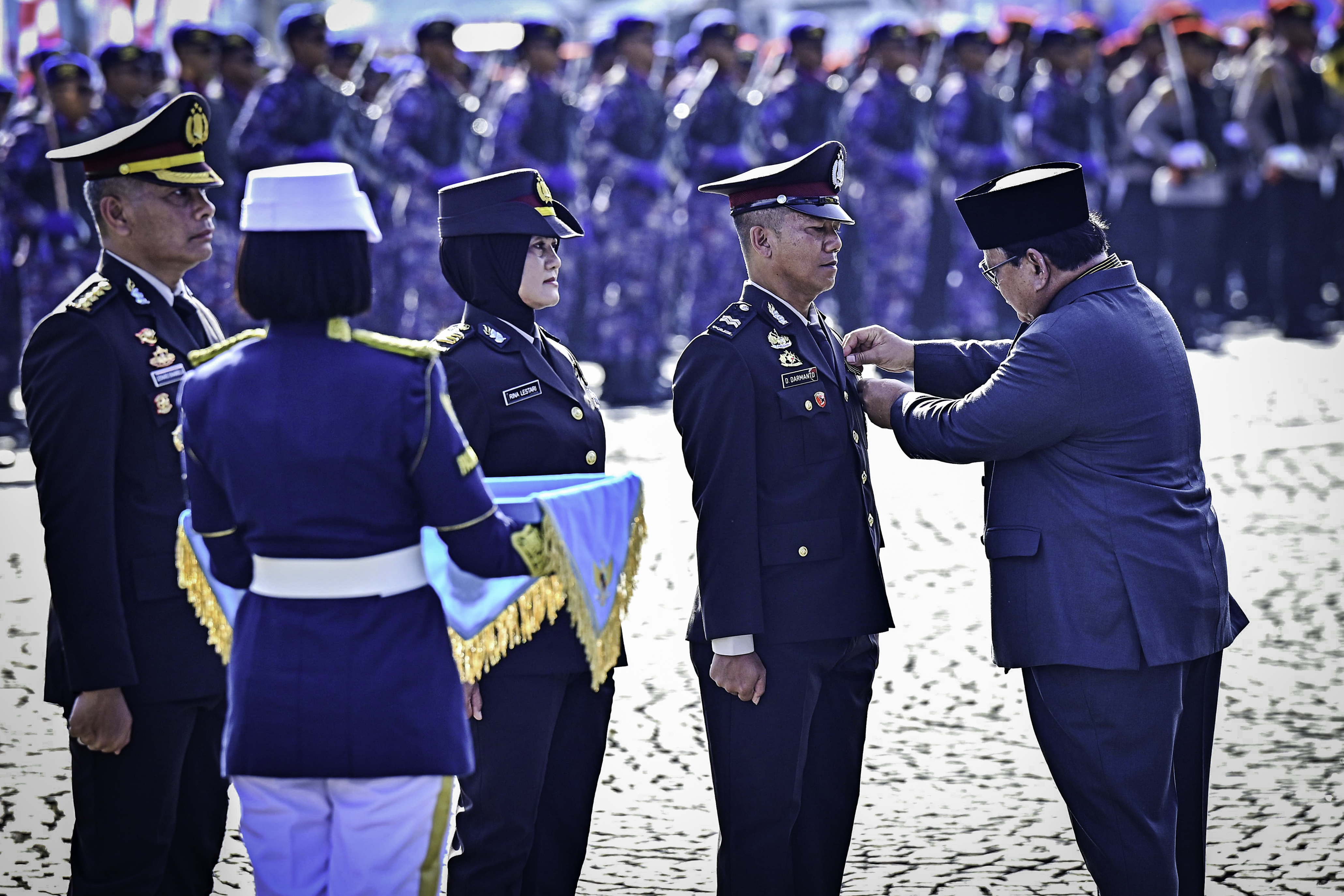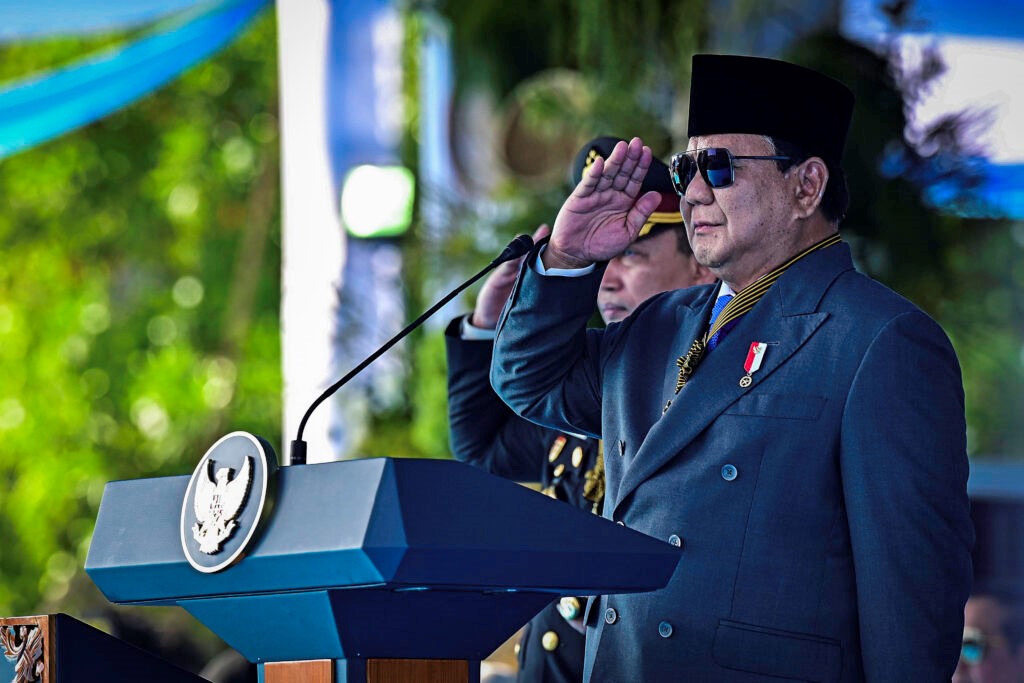Upon Receiving House’s Commission II, Bali Governor: Tourist Arrivals Boost Economic Recovery

The House’s Commission II on a working visit during the recess period of the 5th assembly of 2021-2022, in Sabha Utama Meeting Room , Governor of Bali’s Office, Denpasar, on Monday (07/11). (Photo: PR Office of Cabinet Secretariat/Rara).
Governor of Bali Wayan Koster said that the recent increase of tourists visiting Bali has boosted economic recovery in Bali after the devastating impact of COVID-19 pandemic.
Governor Wayan made the statement when receiving the House of Representatives’ Commission II who paid a working visit during the recess period of the 5th assembly of 2021-2022, in Sabha Utama Meeting Room, Governor of Bali’s Office, Denpasar, on Monday (07/11).
“International and domestic tourists’ visit has boosted the recovery of tourism in Bali’s economy,” Wayan said before the House’s Commission II delegation led by Deputy Chairperson of Commission II Junimart Girsang.
Governor Wayan further explained that as of 10 July 2022, the number of tourists visiting Bali is approximately 28 thousand per day comprising of 20 thousand domestic tourists and 8 thousand international tourists.
“The number of international tourists is only 30 percent of that in the normal situation. Before COVID-19 pandemic, it could reach 30 thousand tourists, but for now, it only reaches 8 thousand tourists,” he explained.
Wayan said that the pandemic has also encouraged Bali to transform instead of only relying on tourism sector. In 2020, Bali’s economy saw a contraction of 9.31 percent due to the decline of tourism sector in which the province heavily relied on.
“In regard to the condition that we have experienced and since tourism is vulnerable to external factor; therefore, we have currently changed our policy and have carried out economic transformation with the economic concept of Kerthi Bali (a concept to realize Bali’s independency in economy). It is aimed to balance Bali’s economic structure and fundamental in order not to rely only on tourism sector, but also on natural resources potential in Bali,” he explicated.
The six sectors included in Bali’s Kerthi economic formulation are, namely, sector of agriculture expanded to organic farming system; sector of marine and fisheries; sector of manufacturing industry and Balinese culture-based industry; sector of small and medium industry (IKM), micro, small, and medium enterprises (UMKM), and cooperatives; sector of creative and digital economy; and sector of tourism. Wayan said that the six priority sectors of Bali’s economy have been officially documented by the National Development Planning Agency (Bappenas) and have been set as the example of national economic transformation launched by President Joko “Jokowi” Widodo on 3 December 2021.
Wayan also expressed optimism that “Proud of Indonesian Products” National Movement (Gernas BBI) reverberated by the Government can boost the regional economy.
“Regulations related to the reinforcement of local resources and local wisdom can be done to make Indonesia more advanced through development in the regions. I think it will boost the economy and the people’s welfare and empowerment in the respective regions,” Wayan said.
Meanwhile, Deputy Chairperson of the House’s Commission II Junimart Girsang said that the working visit is a part of the implementation of the House’s tasks and functions, especially the function of monitoring, absorbing and following up on the aspirations of the regional governments and the people. The issues being discussed were, namely, regional government performance, bureaucracy and public service reform, population administration, especially electronic ID, as well as land and spatial issues.
“The monitoring is aimed to support the regional government performance to be effective, efficient, democratic, and free from corruption, collution, and nepotism, as well as to create a regional government supported by human resources/apparatus who are professional, honest, and have high moral integrity,” Junimart said.
The meeting was attended by members of the House’s Commission II and regional government organizations of Bali province. Also attending the meeting were partners in cooperation of the House’s Commission II, among others, Cabinet Secretariat, Ministry of State Secretariat, National Archive, and State Administration Institution. (RF/UN)(AW/MUR)








